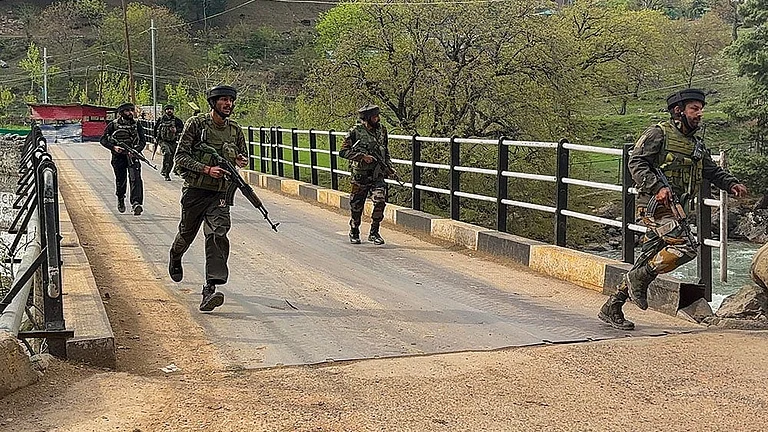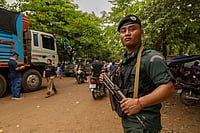The Pahalgam terrorist attack was an act of economic warfare meant to destroy tourism in Kashmir and provoke religious violence, External Affairs Minister S Jaishankar said at the One World Trade Centre in New York.
He said this during a conversation with 카지노 사이트week CEO Dev Pragad, hosted at the publication’s headquarters. Jaishankar is on an official visit to the United States to attend the Quad Foreign Ministers’ Meeting, which begins Tuesday. His visit commenced by inaugurating an exhibition in the United Nations headquarters titled ‘The Human Cost of Terrorism’, organised by the Permanent Mission of India to the UN.
Jaishankar said that India has had a string of terrorist attacks emanating from Pakistan, and in the wake of the latest, the April 22 Pahalgam attack, there was an outpouring of “enough is enough” sentiment in the country. He said that India has made it clear that it will not allow “nuclear blackmail” to prevent it from responding to terrorist actions.
“The Pahalgam attack was an act of economic warfare. It was meant to destroy tourism in Kashmir, which was the mainstay of the economy. It was also meant to provoke religious violence because people were asked to identify their faith before they were killed,” said Jaishankar.
“So we decided that we cannot let terrorists function with impunity. The idea that they are on that side of the border and that, therefore, sort of prevents retribution—I think that’s a proposition that needs to be challenged, and that is what we did,” he said.
He said that Pakistan-based terrorists carrying out attacks against India do not operate in secret, and that terrorist organisations with the “equivalent of their corporate headquarters” exist in Pakistani towns. “Everybody knows… the headquarters of Organisation A and Organisation B… and those are the buildings, the headquarters, that India destroyed” in Operation Sindoor, he said.
Operation Sindoor was launched in May 2025, weeks after the Pahalgam attack, to target alleged terrorist infrastructure in Pakistan and Pakistan-occupied Kashmir. Jaishankar said that these were essential actions in response to the attack.
In the Pahalgam terrorist attack, 26 people were killed, and the Resistance Front (TRF), said to be an offshoot of the Pakistan-based Lashkar-e-Taiba (LeT) claimed responsibility. Referring to the exhibition he inaugurated at the UN, Jaishankar also highlighted the devastating toll of terrorist attacks across the globe. He said India believes that “terrorism is actually a threat to everyone, that no country should use it as an instrument to further its policies because, at the end of the day, it comes back to bite everyone”.
India, for long, has heard that as both India and Pakistan are nuclear countries, any intense confrontation can escalate to nuclear warfare, and the war could escalate to a regional conflict. No longer will India be afraid of this “nuclear blackmail”, Jaishankar said, amid applause from the audience. ‘We will do what we have to do to defend our country,’ he said.
He stressed that the message to the world must be of “zero tolerance” for terrorism, and no circumstances, excuses, or justifications can allow a country to support, finance or sponsor such acts.


















